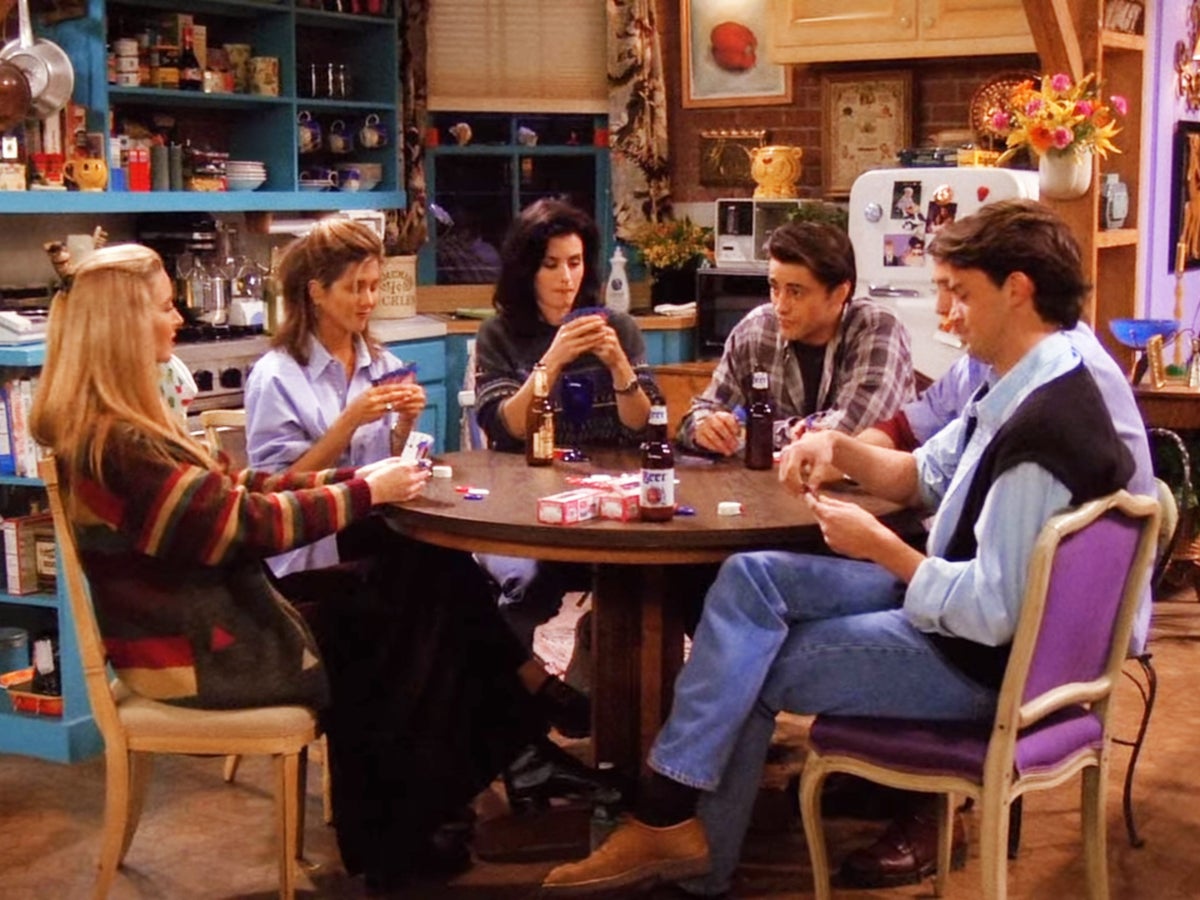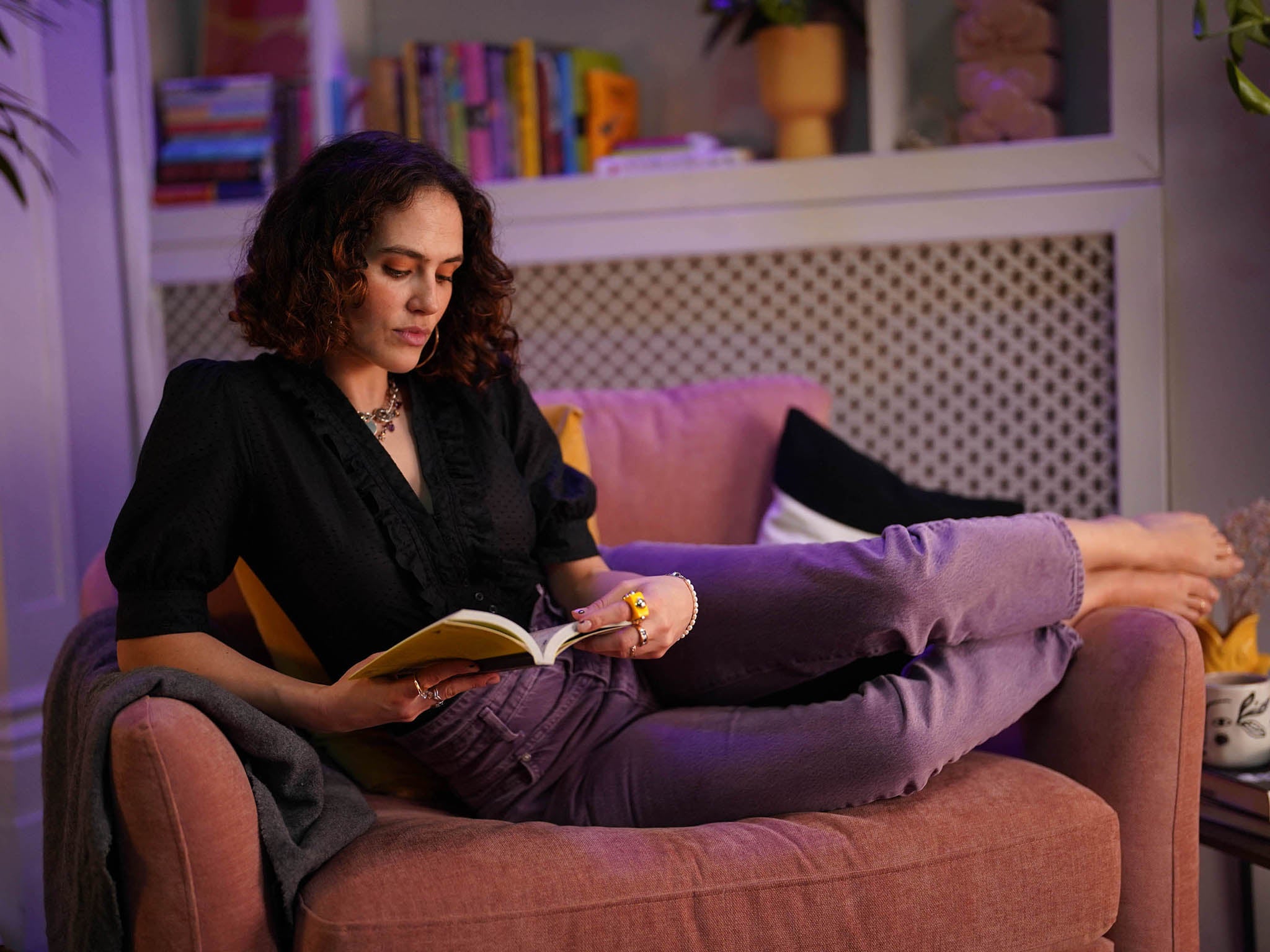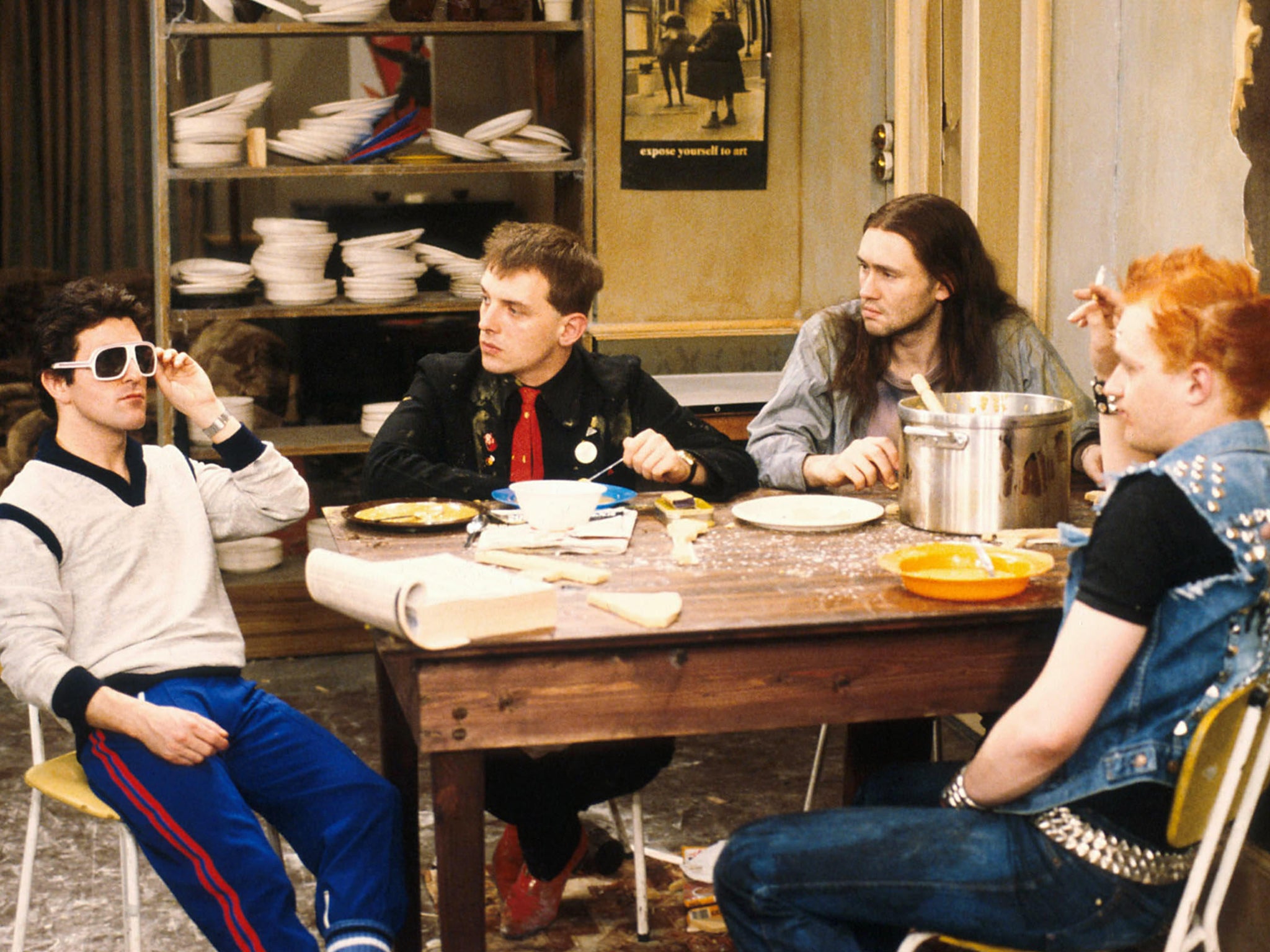
The contract says no crossover: he has it from 8am to 8pm and I have it 8pm to 8am.” In the first episode of The Flatshare on Paramount Plus, Tiffany (Jessica Brown Findlay) explains the intricacies of her unorthodox new living arrangement to her friend Maia (Shaniqua Okwok) over brunch (avocado toast, fancy lattes – the sort of meal that certain corners of the commentariat love to scapegoat). This kind of exchange is typical of a series – adapted from Beth O’Leary’s 2019 novel – that zeroes in on the day-to-day travails of renting in London.
The arrangement, though, is more of a bedshare than a flatshare: Tiffany’s nocturnal flatmate Leon (Anthony Welsh) will catch up on sleep in the one-bed apartment while she is out at work during the day. At weekends, though, Tiffany will have the place to herself, “so it’s actually a pretty good deal”. Maia’s face says otherwise – but anyone who has experienced the rental market in recent years has probably engaged in some similarly strenuous mental gymnastics to justify a questionable housing set-up.
From the Manhattan apartments in Friends and the LA loft in New Girl to the undergraduate anarchy of The Young Ones (north London) and Fresh Meat (Manchester), the houseshare has long been a popular fictional backdrop (even Hugh Grant’s bookshop owner Will has a cursory flatmate in Notting Hill). With its codified rules and often unlikely mix of people living alongside each other in claustrophobic proximity, it’s particularly beloved in TV comedy, giving writers plenty of excuses to throw their characters into heightened situations in cramped quarters.
If growing up and settling down are symbolised by home ownership, the fictional houseshare has often represented a transitional life stage: an in-between space where the protagonists can navigate early adulthood, making mistakes, shunning responsibilities, figuring it out (the exception, perhaps, is Peep Show, where David Mitchell’s Mark and Robert Webb’s Jeremy are slightly older, their Croydon flat trapping both men in a sort of symbiotic stasis).
But now, buying a house is becoming an increasingly distant dream, and house-sharing is no longer necessarily a stepping stone. Research carried out in 2019 by the Resolution Foundation think tank suggested that one in three millennials will never own a home, while the 2019/20 English Housing Survey noted a “considerable increase” in the proportion of 35-44 year olds in the private rented sector (from 17 per cent in 2009/10 to 27 per cent in 2019/20).
Against the backdrop of an overcooked housing market, the way the houseshare is represented on screen and in novels is shifting, as millennial and Gen-Z writers begin to document their experience.
“It isn’t fair any more to depict people in their late twenties and early thirties as living glamorous lives where they own homes and everything is quite free and easy,” says Phoebe Luckhurst, journalist and author of The Lock In, a locked-room romcom in which three housemates – and one of their dates – are trapped in the musty attic of their New Cross rental. Her novel, she adds, “was very much informed by previous landlords, and that situation you find yourself in ... when you’re at the whim of someone [a landlord] who you don’t know and [who] doesn’t really care about you.”
While Tiffany and Leon’s arrangement eventually fuels a sweet romantic comedy, with their Post-it note correspondence going from passive-aggressive to tentatively flirtatious, their fledgling relationship, according to The Flatshare’s executive producer Miriam Brent, is “grounded within a recognisable reality”, forming part of a narrative that explores “the cost of living and how impossible it is to get on the housing ladder”.
Since O’Leary’s book was optioned in 2018, London’s rental market has only become more febrile. In the novel, Tiffany pays £350 a month to go halves on Leon’s flat in Stockwell, south London; in 2022, that figure would surely be much higher. The average asking rent in the capital hit £2,343 per month in October, marking a 16.1 per cent rise year-on-year, the biggest recorded annual increase (outside the capital, the average rent is £1,162 per month, an increase of 11 per cent).
“I think now it feels more relevant than ever, and people are being forced into making those kinds of sacrifices that Tiffany and Leon do more regularly,” Brent says. “There’s no stability for [their] generation when it comes to housing, with no protection for renters.”
In the fictional flatshares of a few decades ago, sharing “emerge[s] almost as a lifestyle choice rather than an economic necessity”, says Dr Beth Johnson, professor of television and media studies at the University of Leeds. She cites Nineties hit This Life as a show where this set-up symbolised “a space of freedom and exploration ... It’s not that there wasn’t ever a financial necessity, but it wasn’t centred,” not least because that series focused on a group of trainee lawyers. “So in many ways, it was still [a] pretty privileged [representation].”
You live somewhere for a bit and you feel settled-ish, but you do always know that the rug can be pulled out from underneath your feet at any point
In the quintessential flatshare sitcom Friends, there may be some “very nominal” nods towards economics – “There is a very specific narrative point about Monica being left this property by [her] grandma, and it was under rent control,” Johnson notes – but the set-up is an idealised one, the flatshare as chosen family. Plus, “The fact that not every character lived in those apartments essentially gave the message that you could afford to live on your own, close to your friends,” she adds.
Contemporary stories can still explore the potential joys of a shared house. Dolly Alderton’s memoir Everything I Know About Love, recently adapted by the BBC, is a nostalgia-soaked love letter to renting with mates, set in a Camden flat where damp washing is strewn on every possible surface; Rose Matafeo’s superlative comedy series Starstruck is another millennial romcom, but the relationship between Rose (played by Matafeo) and housemate Kate (acted by her IRL former flatmate Emma Sidi) is as warmly and cleverly observed as the romance.
The spaces these renters occupy, though, don’t feel quite as divorced from their bank balances: they are not “idealised versions of homes”, as Alžbĕta Bartoníčková, filmmaker and lecturer in film and media practice at the University of Kent, puts it, “where someone lives in a huge apartment – based on the buildings, the flats inside can’t be that big, [and if they were, the characters] would never be able to afford it based on their job.”
Starstruck’s film-star-falls-for-civilian storyline might take its cues from Notting Hill, but Rose and Kate live in a shoebox of a flat in Hackney; when they attempt to host a murder mystery party like grown-ups, they end up having to ask one guest to bring some chairs. The Flatshare’s production team, Brent recalls, chose a flat in Vauxhall for the exterior shots, “just up the road from where the flat is in the book”, and used a studio set for the interior, which was “entirely measured out to replicate the real flat, just made a tiny bit bigger to allow for crew”.

Phoebe Waller-Bridge’s Channel 4 series Crashing, described by The Guardian as “a generation-rent Friends for austerity Britain” upon its release in 2016, depicts a very different situation. It’s set in a derelict hospital occupied by a disparate group of property guardians: they range from the frosted-tipped, laddish Sam (Jonathan Bailey) to a fiftysomething divorcee played by Adrian Scarborough. Their rent may be low, but the property is run down to the point of constant hazard, and as guardians not tenants, the group have none of the usual rights. “The comic elements are front and centre,” Johnson notes, but Waller-Bridge does a good job of highlighting not just the economic necessity but the “element of insecurity and precarity” that underlies this set-up.
This precarity is something that increasingly occupies young millennial writers. Take Mood, the debut TV show from Nicôle Lecky, which aired on BBC Three earlier this year. Aspiring musician Sasha (played by Lecky) is thrown out of her family home, then sofa-surfs with an increasingly volatile group of male friends before a chance meeting with influencer Carly (Lara Peake), who invites her to take the spare room in her aspirationally minimalist central-London flat. To pay the rent, and keep up with Carly’s lifestyle, Sasha ends up following her lead and becoming an online sex worker on OnlyFans.
With its trippy musical interludes and expert unpicking of uncomfortable power dynamics, Mood is far removed from the usual onscreen houseshare, but the way it explores gendered economic difficulties is “really powerful and central” yet “doesn’t feel didactic”, says Johnson.
Sasha’s space in the flat is always contingent, never quite secure. A transitory existence wears you down, as does the uncertainty of never feeling truly settled, and a constant, nagging buzz of anxiety is the prevailing mood in many of these stories. “It’s something that gets into your mindset after a while,” Luckhurst says. “You live somewhere for a bit and you feel settled-ish, but you do always know that the rug can be pulled out from underneath your feet at any point. It’s quite a weird thing to have to internalise as the way you live your life.”
In Three Rooms, the debut novel by Jo Hamya, the unnamed narrator moves through a series of temporary living arrangements, from an expensive, anonymous rented room in university halls in Oxford to a friend-of-a-friend’s sofa in London. Housing worries start to annex more and more of her thoughts, and Hamya uncannily captures the “dull panic” of scrolling through Rightmove, the lurching feeling in her stomach as she changes the parameters, expands the search through the Transport for London zones, “only to find I would still not be able to afford my life”.

Having your own space shouldn’t be an outlandish desire, but the narrator of Three Rooms is repeatedly made to feel as if it is. First, she is embarrassed to voice the truth, that “the end goal I wanted, through any job necessary, was to be able to afford a flat, not just a room, and then settle in it and invite friends to dinner”. When she eventually speaks up, she is relentlessly gaslighted, first by her housemate (“Cheer up, it’s not like you’re homeless”) then by that character’s mother, who launches into a rote critique of the younger generation, lambasting them for wanting too much and not working hard enough.
The majority of these narratives, on the page or onscreen, are middle class ones, which is unsurprising given that TV and publishing are industries in which people from wealthy backgrounds are still disproportionately represented, but the houseshare can still be an interesting prism through which to explore privilege. Reliance on parental support is spoken of in hushed voices, “barely audible and throwaway”, in Three Rooms, as a sort of embarrassing necessity, but it underpins and cushions the lifestyles of many of the characters the narrator meets, not least at the Tatler-esque society magazine where she works on a temporary contract. “If you can, you’ll end up doing it too,” her flatmate says defensively. “There’s no other way to stay.”
Set amid Dublin’s housing crisis, Sally Rooney’s novels, and their accompanying TV adaptations, make for enlightening viewing from this angle, too. When Normal People’s Connell (played on screen by Paul Mescal) and Marianne (Daisy Edgar-Jones) move to Dublin for university, the former “has to share a room with someone, the most extreme option”, notes Bartoníčková, while Marianne lives in a city-centre Georgian townhouse with her friends “because her family is extremely rich. It feels like there is nothing in between,” she adds, and their relationship feels yet more stratified.
“Every time I scrimped and saved, swapped a £2.35 americano for a filter coffee, the grand irony of paying close to £10,000 to take up rooms in a place [the University of Oxford] responsible for spawning the government that daily dismantled my ability to afford a mortgage or the cost of rent was not lost on me,” Hamya writes in Three Rooms. What is the point, she seems to wonder, of saving pennies for some future deposit when at the same time she is buying into the same university ecosystem that nurtured the politicians currently making that future almost impossible? Is she complicit in propping up the system that is dragging her down?
Hamya doesn’t give us easy answers, unravelling both the narrator’s own privilege and the patronising media discourse that has come to frame housing – one that places the onus on small, personal actions (and the total effacement of all pleasures) rather than political change. The rental market is crying out for a structural overhaul, but can these stories help to draw the nation’s attention to a crisis that is shaping an entire generation?
For Bartoníčková, although the intricacies of evictions, property prices and landlord woes are “too complicated” for comedy, which is likely to stick with obvious tropes (damp patches, housemates that don’t leave their rooms), stories about housing will be “reflected more in the years to come” in other genres, as these concerns take up more and more mental space. Brent, meanwhile, notes that television has a history of “bringing issues to the fore without making audiences feel that they’re being hit over the head with it” – a strategy she has tried to emulate in The Flatshare.
“There probably is a soft power in [stories] emphasising that this is the reality for our generation now,” adds Luckhurst. “I do think that, hopefully, it could do something to reiterate the need for help. Otherwise, where does it stop? When do we get to grow up?”
‘The Flatshare’ is on Paramount Plus from 1 December






